Bifurcation in the Civilization of Capital
Mohand
What happens when capital no longer seeks to dominate nature, but identifies itself with it? Drawing on a wide range of thinkers from Giorgio Cesarano, Yuk Hui, Jacques Camatte, and Ernst Bloch, the following essay looks at how ecology risks transforming the survival of the species into an escape hatch for capital.
Other languages: Français, Español
Troubled and bloody years are approaching. We recognize them all the more clearly because we steadfastly refuse to submit to the most recent figure of death, to enlist under its flag. Enlightenment capitalism and terrorist capitalism confront one another, confusing every playbook, a frightening confusion that permeates our bodies, our lives. Those who fight on the side of life won’t allow themselves to be "peacefully" killed, but they also won’t allow death to rob them of their passion. Let the suicidal bury the murderous.1
The limits of the perpetuation of life as we know it today appear globally as so many concrete barriers to the expansion and maintenance of the civilization of capital. The production and reproduction of capital has become intrinsically intertwined with the possibilities of the survival of our species. In pursuing the satisfaction of our desires, human beings have exceeded the material capacities of the planet. The tendency of the rate of profit to fall, which Marx considered the central contradiction of capital — and there are still some who bank on an umpteenth decisive crisis — is no longer an abstract theoretical prediction relegated to the separate sphere of economics but now actualizes itself as a real crisis: not a crisis of overproduction or overaccumulation but of the underproduction of the essential conditions for the maintenance of a certain life. In the near future, capital will no longer be able to track down sufficient resources, cheap labor and energy, nor any new frontiers to exploit in order to renew itself, since it has already colonized the entire planet. Having drawn its substance from a world that does not expand as fast as it does, it now confronts the abyss of its own collapse. However, it won’t go down alone, but will also take a sizable chunk of the biosphere down with it. Through various theoretical prisms and practices, "political ecology" attempts both to warn us about this catastrophe and to struggle against its eventual arrival. By announcing the disaster, it presents itself simultaneously as its only possible alternative: it is ecology or collapse, we’re told. Yet just as climate change does not threaten life as such but rather life as human beings know it and partake in it, could we not also envisage a continuation of the valorization process beyond this life that we experience? What if we were to hypothesize the escape of capital not only from the law of value, but from the very social process that made its colonization and expansion possible since the beginning, namely, human labor? In other words, is the disaster that presents itself as the announcement of the apocalypse reducible only to a destruction of the world? Couldn’t it also take the form of a radically different renewal of the civilization of capital? Can't capital bifurcate too?
The question is not whether capital could today emancipate itself from humanity, from whom it extracts the energy necessary for its production and reproduction, but how the intertwining of such a hypothesis with the catastrophic unraveling of the conditions of existence might allow us to avoid succumbing to the pitfalls of a certain "political ecology" — namely, the generalization and intensification of the despotism of capital and the domestication of "humanity."
Of course, ecology presents itself as the study of the relations between beings and their environment, and it is on this basis that it stands opposed to an immediately destructive mode of production. However, such a distinction does not envisage the perpetuation of horror beyond an extractivist or polluting mode of production. Ecology reifies the consequences of capital (or the modern techniques of production) in order to differentiate itself from it in an abstract way, yet without ever questioning either its origins or the possibility that the processes of valorization it set in motion could be reborn anew. To limit our understanding of capital solely to its enterprise of destructively dominating the biosphere is to limit its horizon of struggles, thereby cutting us off from a real offensivity and facilitating an ever more integral management of the living being that one claims to want to save. Between the examples offered by Antoine Dockès's Journey into Misarchy and Mark Zuckerberg's Metaverse, we see so many shades of an existence led back to the despotism of a capital that is now capable of perpetuating itself by transforming its relationship to nature, whether by integrating it totally or by diminishing its hold over it through the material constitution of a "second nature."
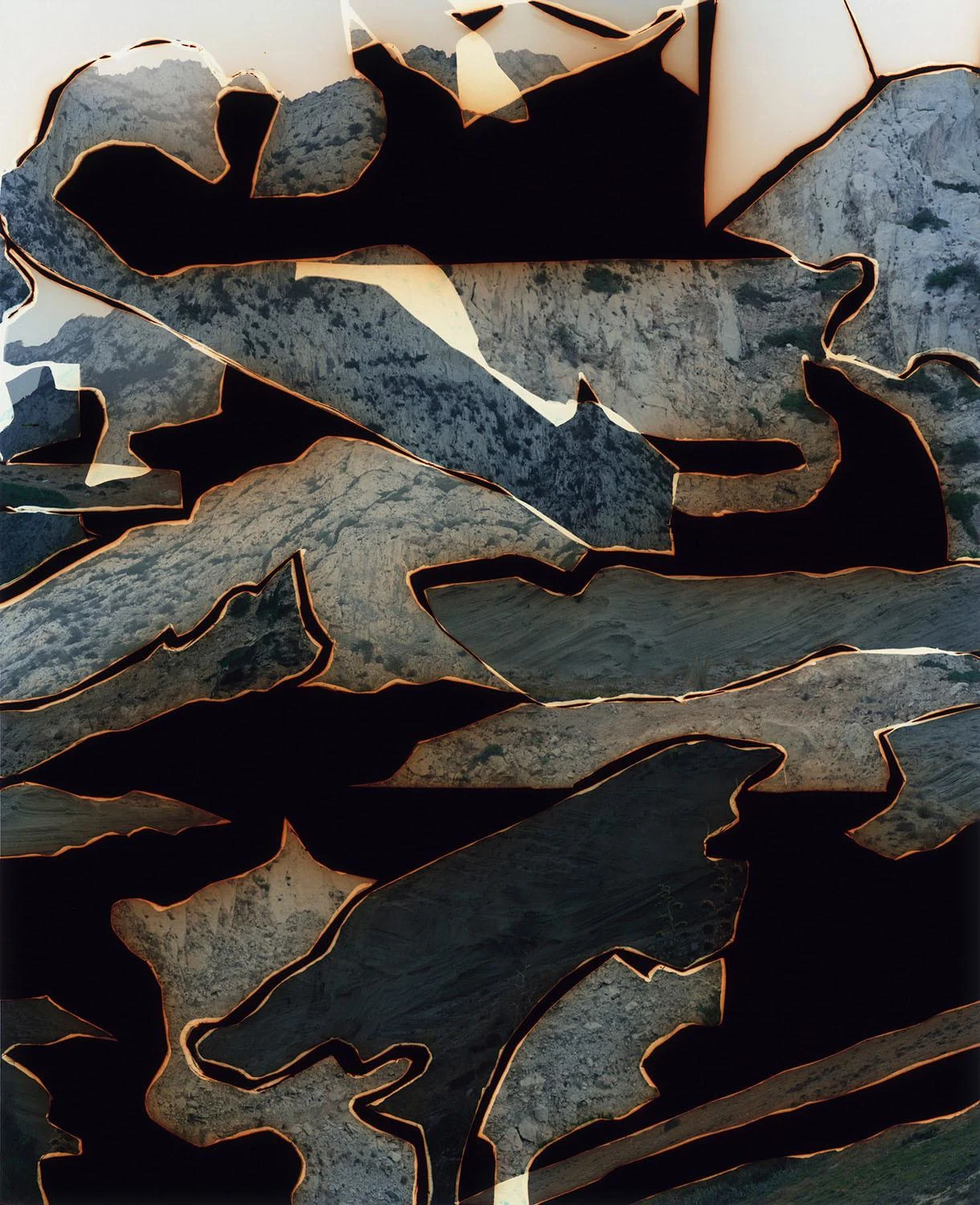
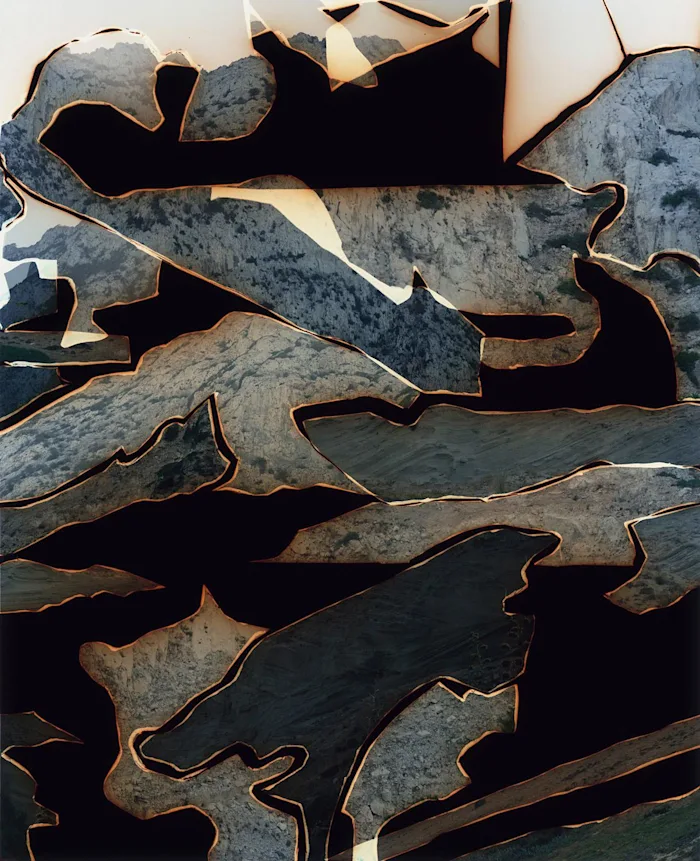
In fact, the civilization of capital presupposes a particular "cosmotechnics"2 whose development (or "technical tendency," i.e., its tendency to persevere in its specificity, to speak like Leroi-Gourhan3) entails an ever-greater destruction of the living. Western cosmotechnics, which has today become planetary4, articulates the separation of the divine from the human, of the subject from the object, of the species from its environment, etc., always with a hierarchical primacy of the subjective pole. The rejection of animality and the glorification of logos or rational thought are illustrations of this tendency, which helped give rise to an ideology of the domination of man over nature. Whereas Cesarano and Adorno5 each tended to read the historicaldevelopment of this relation as the uniform realization of a single tendency, from the paleontological roots of the human species to the formulation of the Cartesian idealist project and into the production of the "social person," Yuk Hui’s contribution allows us to relativize this genericity. Nevertheless, the Western cosmotechnical bifurcation that enables the civilization of capital to become a planetary hegemony and which, by doing so, makes the species appear to itself for the first time as an abstract humanity seems only to generalize separation and the primacy of the subject over the object. As Cesarano writes,
It is the ideology of domination over nature that immediately determines the practice of the domination of men over men, bellum omnium contra omnes, and it is on the genetic contradiction between the being of the species participating pragmatically in the organic naturing movement and the institution of the species as subject of the knowledge of being that the historical determination of the production of value, as the valorization of non-life, is founded; the production, antagonistic to the naturating movement, of an organized "reality" where the exchange of values — that is to say the economic, rigid exchange of abstractly equivalent entities extracted like a raw material from the organic movement — is superimposed on the organic movement to deny its naturating substance, to abolish its sense and its instantaneous organic coherence, and thus institutes itself as an illusory universe, "real," substantially antagonistic to the organic evidence of the naturing movement, by interposing between the subject as the self that knows being and the "social person," on the one hand, and on the other, the generic self alienated in the conditions of production and reduced to the status of raw material — labor-force, productive collectivity of value — the screen of the organization of appearances.6
In short, to consider the possibility of capital escaping the destruction announced by the realization of its substantification implies that it has managed, in one way or another, to curtail the original incoherence on which it was nevertheless built. Such a possibility implies a change of cosmotechnics on the part of capital, a metaphysical revolution. It is thus a question of thinking a revolutionary capital, not merely because it would have succeeded in escaping the old contradiction between labor and capital, but because it now struggles to escape the contradiction between nature and culture. In this way, capital would no longer produce ways of life as consequences of its domination, but would dominate precisely through the production of new ways of life. If we are serious about elaborating a genuinely offensive position capable of confronting this civilization, it is indispensable that we pay close attention to the actors in this bifurcation.
Objective Possibility and Real Possibility
To be clear, capital has not fully embarked on a transition to what some refer to as "sustainable development." It is still entirely dependent on what someone like Moore might call "cheap nature" (i.e., low costs of the "big four" inputs: food, labor, energy, and raw materials).7 But this would again be to take capital for what it has been, not for what it is becoming or what it could be. We need not deny materialism to take seriously Bruno Latour's recent affirmation that, “we have changed our cosmology.”8
If we take up Yuk Hui's terminology, a change of paradigm or of "cosmology" need not immediately cross over into the sphere of technical activities, particularly if it struggles to link up with what Hui calls "the moral order." The faint presence of ecological issues in the public debate and political decision-making attests to this. We can observe the coming of a "New Climate Regime" even though it has not yet had any real impact on our ways of life, despite the explicit urgency. However, the idea is on everyone's mind. The generalization of this awareness of "the world in which we live and the world from which we live”9 does not ask us to stop examining the worldsolely on the basis of the material conditions already produced and known. The error of political ecology consists in claiming that the resolution of this disjunction through the realization of an identity between a new cosmology and a new morality would make it possible to establish technical relations coherent with the future of the world, and in this way, to prevent the disaster. However, there seems to be a confusion between the appearance that this disaster takes on in the immediacy of the catastrophe and its historical truth, namely that of "the permanent catastrophe." In our view, the root of the confusion lies in a poor comprehension of the category of the possible, which has been limited to producing probable forecasts on the basis of scientific "facts." In order to escape this sort of positivism, Ernst Bloch proposes a distinction between two modes of possibility: objective possibility and real possibility. In the first volume of ThePrinciple of Hope, he writes:
Objectively possible is everything that science has the right to hope for, or at least not to exclude, on the basis of the mere partial knowledge of its existing conditions. On the other hand, really possible is all that whose conditions are not yet completely gathered in the sphere of the object itself; either because they still have yet to ripen, or else especially, because new conditions — mediated by the already existing conditions — that necessary to the birth of a new real, have hatched.10
This distinction allows us to throw open the becoming of matter, not only on the basis of what the author refers to elsewhere in the book as our “inauthentic future” — that is, the reproduction or the renewal of something that has already been (the fall of a stone, the purchase of a new car, the conquering of a right...) — but also of an authentic future— something that has never been, but that is made possible precisely by this opening of matter.11 This does not mean that we should exclude from our political hypotheses any apprehension of the future based on objective possibilities (these are illustrated, for example, by the IPCC reports); but limiting ourselves to these alone prevents us from considering our own wandering from the point of view of an effort to bring into existence a position truly antagonistic to the civilization of catastrophe. Worse still, they condemn us to wander with it.12 For Bloch, this opening of matter allows him to state, in a speculative language, the real possibility of the necessary realization of the Sovereign Good.13 For our part, it allows us to glimpse, from the point of view of capital, disaster as the continuation and perpetuation of the process ofvalorization through a radical transformation of its presuppositions, and this not merely as the "end of the world,” i.e., as an abstraction devoid of meaning (although the "objective" short and medium-term forecasts implied by climate disruption seem very concrete and the horror of their consequences conjure up apocalyptic landscapes).
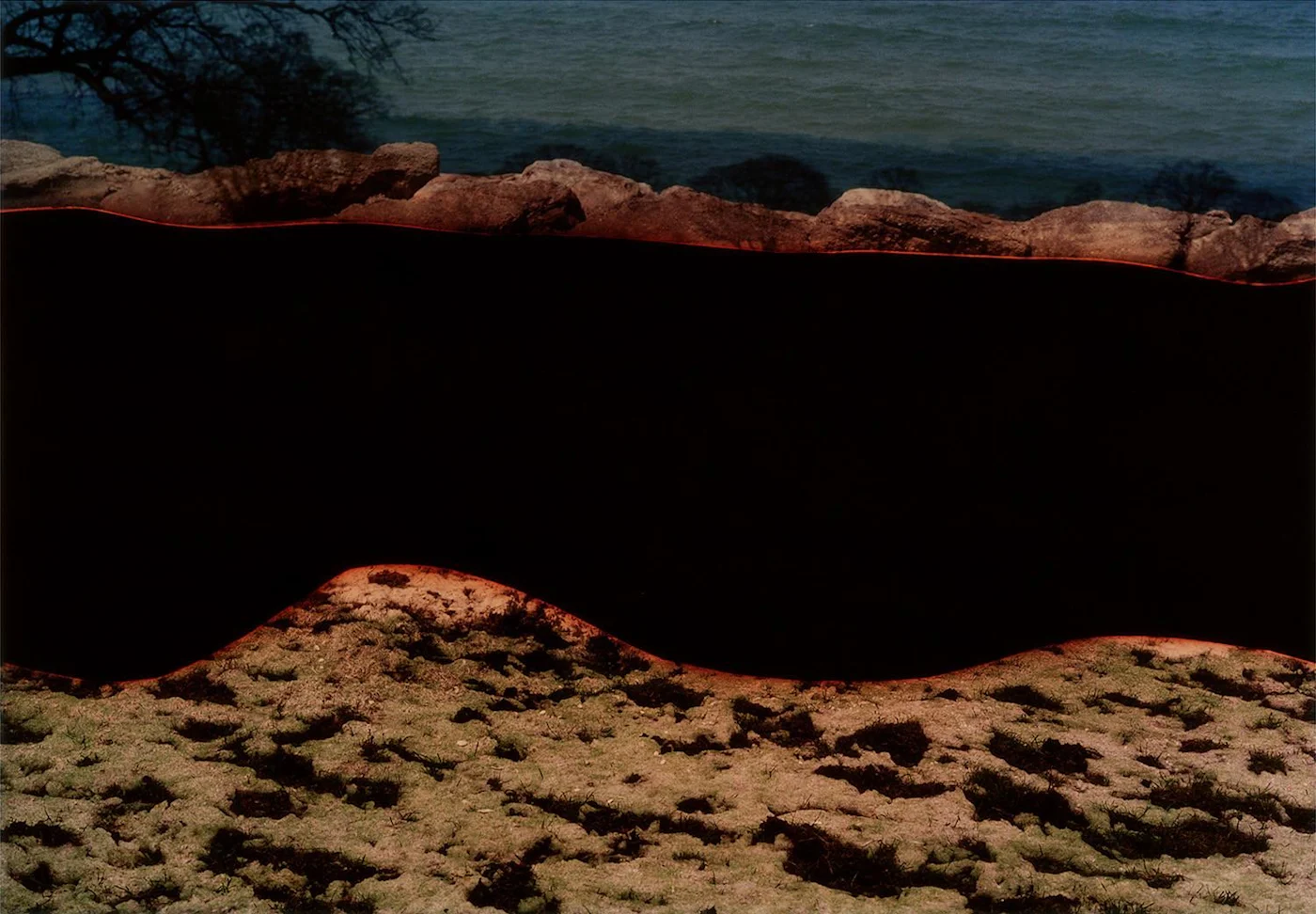
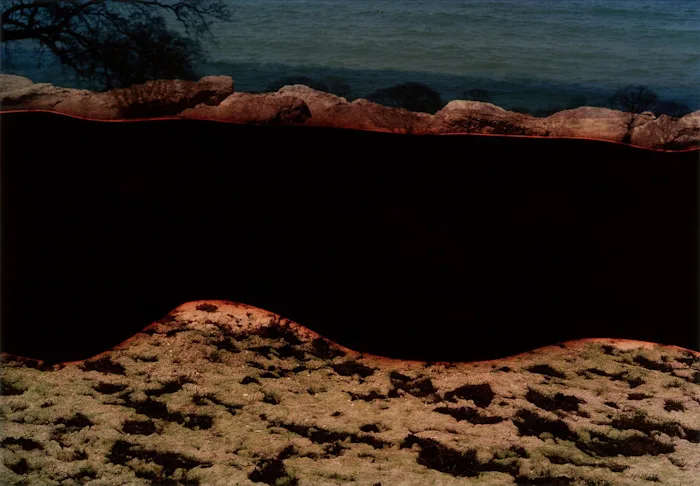
Let us be clear, it is not a question of denying the imminence of catastrophes linked to extractivism, climate disruption, various forms of pollution, as well as possible economic crises, but of seriously considering the possibility that the Western cosmotechnics that historically presuppose the process of valorization and which seems, for many ecologists, to be the condition of possibility of the "New Climate Regime" might be radically transformed without putting an end to the production and the reproduction of capital. In other words, one would have to accept that a part of political economy wants the same thing as political ecology. If not now, then in the near future. To say this is not to affirm that the movement of capital is already actualizing the ecological "transition." It does, however, allow us to see within capital and its contradictory tendencies the horizon towards which it hopes to perpetuate its process.14 From this a few “certainties” may emerge.
Ecology/Economy
Given the problems of pollution and the rarefaction of raw materials, the economy as the science of organization proper to a specific geographical domain tends to be supplanted by ecology. [...] This convergence with ecology allows us to define it as the science of the conditions of existence and of interactions between living beings and their environmental conditions. Fundamentally, it is a science of the adaptation of the individual and the species to its environment. Economic science is the science of the adaptation to a precise environment, that of capital.15
Today, in our common representations — our common sense — "ecology" still appears as something separate and distinct from the economy. Two incongruent representations of the world: on the one hand, a primacy of a sensitivity towards the living, on the other, a primacy of utilitarianism indexed to the necessity of profit. However, and in a no less immediate way, from a historical point of view (beginning with the modern project), this difference is abstract. They appear in their difference only in the immediacy of common sense. However, once their otherness vis-à-vis one another is grasped, the presupposed difference is not determined as an indifference; on the contrary, they oppose each other, they enter into contradiction. Ecology emerges foritself out of the harmful consequences the modern economy delivers unto the world in which value substantiates itself, while it appears for the economy, in itself, as a brake on this substantification. However, ecology is not born historically for itself as "ecology," but first of all in itself as a multiplicity of relations to the world sabotaged by a process of valorization that depends upon the domination of nature, whereas these relations appear for theeconomy as so many obstacles to its expansion. Even if it preserves in itself a certain sensitivity for the living, its anterior multiplicity is crushed by the unification that the terms of modern science inflict, since ecology appears first of all as the study of the relations between beings and their environment. In this way, it lays the foundations for a more global science, that of the management of the planet. The notion of "ecosystem" is a prime example. However, as a political movement, it has historically attacked the harmful consequences of the economy on the living world, even though they both seem to be intertwined. Can we not then suppose that, through a dialectical movement, the two might one day each become constitutive moments of a future identity?
Indeed, the practical and theoretical categories in terms of which ecology appears to clash with economics are not necessarily antagonistic; on the contrary, they often converge. The first report of the Club of Rome, Limits to Growth (1972), offers a perfect example: the supposed impossibility of "infinite growth in a finite world" is arrived at through the lens of the modeling tools of economic science, and the ecologism that results from it is merely an attempt to mitigate the consequences of the extractivism on which capital is based. A little earlier, in 1968, the photo of an "Earthrise" taken during the Apollo 8 mission illustrates the "universal awareness" of the planet as a whole. It thus reveals the common future of the entirety of living beings through the mediation of the conquest of space, itself made possible by a certain technique. Now, it is particularly out of a relation to evidence like this that ecological movements first emerged. As early as the 1970s, Jacques Camatte’s "This World We Must Leave" sets out a division between two camps that is still basically true today: on the one hand, we see the constitution of old fashioned rackets for whom the ecological is merely a branding trait that gives them an edge in the competitive logic by which groups vie for attention on the social screen (green political parties); on the other hand, there are all those who, like La Gueule Ouverte, Vie Claire or organic agriculture, attempt to educate, militate, and propose alternatives to capitalized lives without ever really detaching themselves from the categories of capital16 or the past.17
More recently, Bruno Latour's call for the constitution of a "party of the ecological class" whose primary aim would be to seize power through representative democratic means — a perspective equal parts statist and European — rests upon categories that not only make zero sense today, but belong in an essential way to the conditions of appearance of this "new climatic regime" we’re now entering.18 Let's recall that Latour encouraged people to vote for Yannick Jadot.19 Today the ever-increasing consideration of the invisible and the non-human (always by the human) appears strangely like a way of restoring dignity to outdated political categories, allowing political "radicals" to forget the lie against which they once rebelled by conferring newly rediscovered “value” upon the law, representation, and all the levers of power that need to be destituted. Similarly, the green Leninism of Andreas Malm, or the ecological socialism of Jason W. Moore constitute, with different degrees of authoritarianism, an integral management of the world that does not depart from value at all, but seeks instead to index it mysteriously to something other than the production and reproduction of capital, without any awareness that it is only a new way of recycling it. Aside from a few academics who have become known for their interest in the question, current environmental movements, whether it be "Youth For Climate," "Extinction Rebellion," "Reprise de Terre," or "Soulèvements de la Terre" continue to be constituted through categories that are either conservative or in the vanguard of the metaphysical bifurcation of capital. Without claiming any sort of political purity, let us say that the theoretical and political incapacity of these movements to modulate their language, concepts, and the formulation of their desires so as to avoid repeating the ambitions of either private or university research centers, or the preconceived frames of the social screen, leaves us doubtful. As the only remaining lever of conflictuality, the cult of apocalyptic announcements itself raises further suspicions: if its banality doesn’t destine it to be swallowed up by the void, its urgent call for immediate mobilization falls into line with the ultimate ramparts of destruction. But such mobilizations never appear to be aware of their overlap with the increasingly explicit aspirations of capital itself not to have to destroy the world on which it depends.
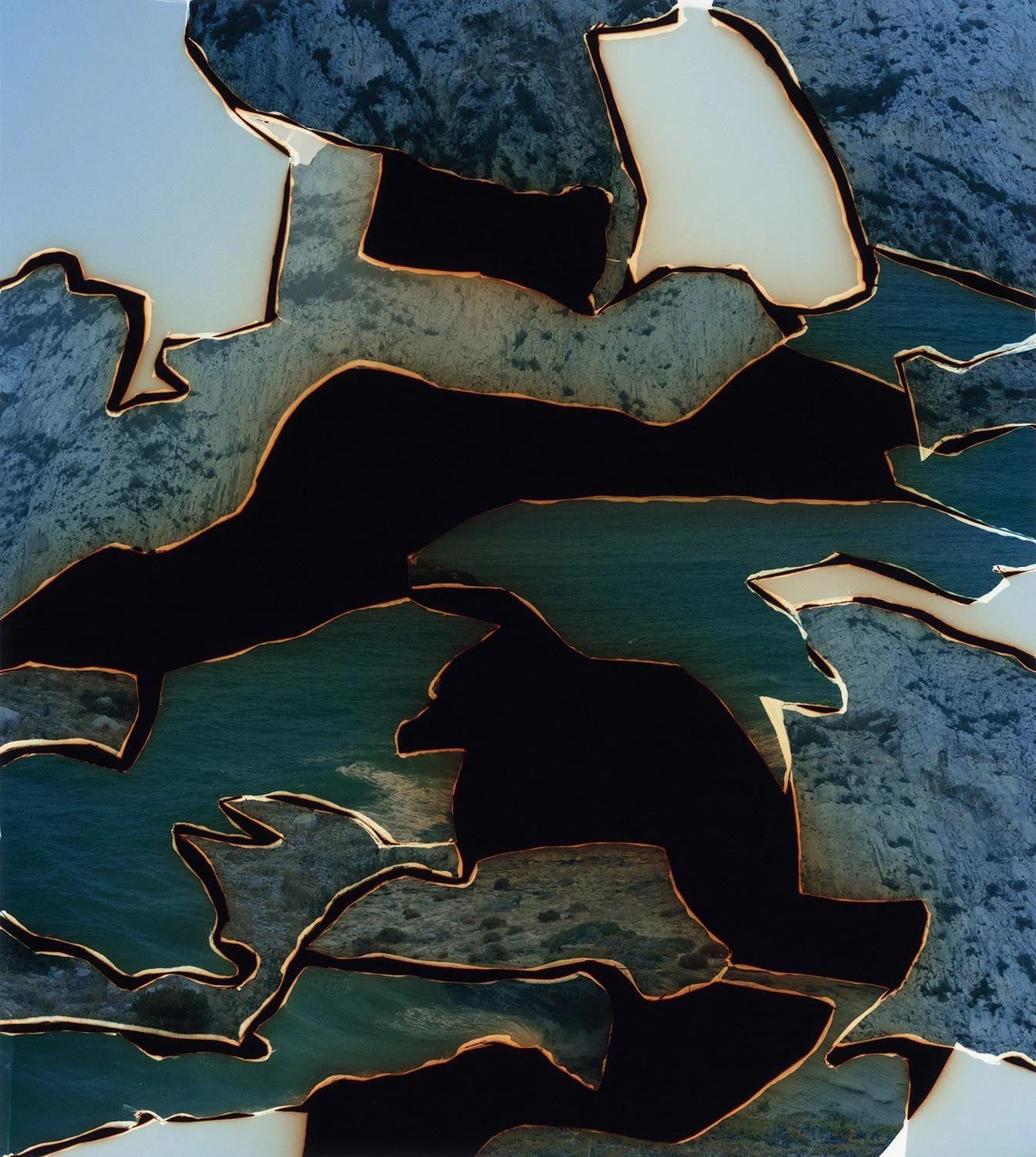
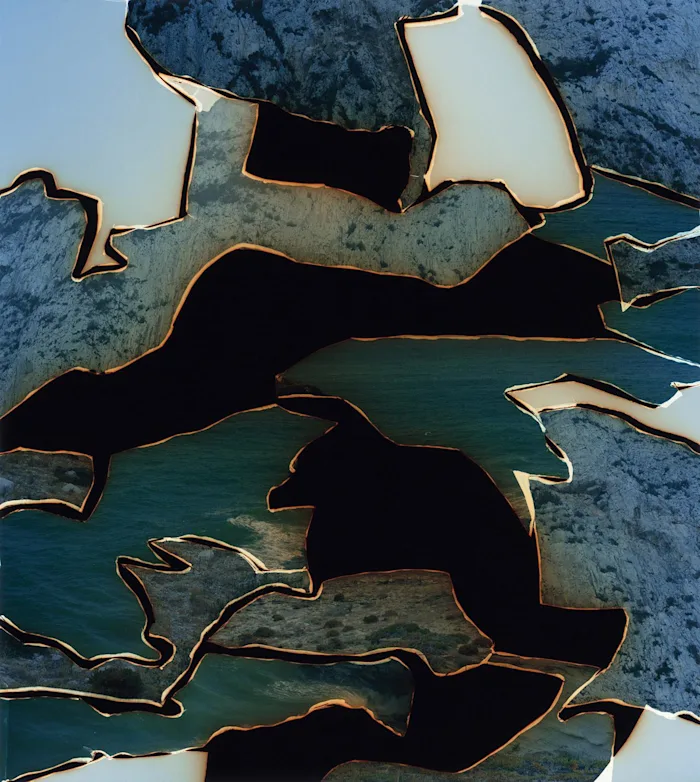
In the 1970s, Cesarano’s Apocalypse and Revolution describes with lucidity the link between counter-revolution and integration into the valorization process of our species’ crisis of survival:
As the process of valorization takes as its exclusive object the autonomized survival of value beyond the limits imposed by its crises, it integrates into itself, as the organic composition of value, the survival of the species as a crisis in the life process. It is in this phase of integration of species being into capital-being (a formal integration, as we shall see later, but a practical and operative one) that the counter-revolution comes into play, as a mechanism of self-regulation in the direct service of capitalist rationalization.20
Cesarano thus grasps the movement that attempts to integrate the very survival of the species into the perpetuation of the process of valorization. This movement is nevertheless articulated through a tension within the very dynamics of capital. It is opposed by a conservative American fraction of extractivist capital that wishes to continue its terrorist enterprise upon the living. On the other side stands an illuminist faction led by the Club of Rome, which recognizes the depletion of resources and the need to renew the process of valorization elsewhere. By grasping this latter tendency, Cesarano envisages the constitution of an authentic future from the point of view of capital. The latter, progressively freeing itself from the enterprise of destroying the living in order to instead become the solution to its own devastation, dreams of colonizing a new space, non-geographical in nature, with a terrain already marked out, which no longer threatens the relations between the living and their environment, and which henceforth consciously attacks interiority.
Thus, when French President Emmanuel Macron chants that "our lives, their lives, are worth more than any profit," this is not just a lie, nor is it just an opportunistic appropriation of a Trotskyite slogan, but also the continuation of this "revolution of capital." Despite its scandalous presentation, there is no doubt in the mind of today’s banking class that humanity will adapt, and value along with it.21 In the same way, the "discovery" by someone like Descola of a false naturalness in the distinction between nature and culture, or the metaphysical pirouettes of Bruno Latour and his henchmen in the early 2000s when they established "nature" as an integrated subject in its own right into their flat ontology — both tendencies attest to one and the same movement, namely, the remaking of a metaphysics adequate to the perpetuation of the enterprise of valorization of the existing. The fascination with tirelessly unveiling of the invisible that grips us, making it available to the senses through a multitude of processes that science monopolizes and technology produces, are only so many means of extending the valorization process. After a long historical process in which the human being was first dissected and refashioned, before passing to the fabrication of "society,” from formal subsumption to real subsumption, and culminating in the rationalized fabrication of the cybernetic project, it is around the “nature” of being itself, no longer only as pure resource, but as the whole in which this human being exists and evolves, that the system turns. The real possibility of capital lies in its identification with nature, whereas its objective possibility lies in the destruction of the latter if it does not manage to realize the former in time. In both cases, the totality of life as we know it is at stake. However, if the only analysis of capital that prevails is one that considers it only as a destructive agent, this makes the task of actually combating its process impossible, since it leaves us lagging behind the present, and we run the risk of rebooting life within an ever-increasing capitalization without first asking whether such a life is worth living.
Capital’s Escape, Second Nature, and the Future of the Capitalist Mode of Production
Starting with the second series of his journal Invariance, Camatte emphasizes that capital has become a material community — that is, a "total development of capital as a completed structure,"22 a totality. This is only possible once capital has become autonomous from its other modalities of existence, and unfolds according to presuppositions that are solely its own.23 Its form extends its domination to the entirety of what exists, even as it tends to de-substantiate itself (for example, value abandons a concrete referent: gold, it is no more than a representation detached from any materiality except that attributed by capital itself — more generally, the cost of labor diminishes and its share diminishes in each commodity). Paradoxically, after having filled itself with the world, it accomplishes its total becoming only by distancing itself from it. This is only possible because the world itself, owing to its colonization and extraction by capital, is exhausting its sources of valorization. For many theorists, such an observation should provoke a crisis — and this is what ecologists continue to believe.24
But for others such as Jacques Camatte, capital manages to escape or "run away" from the system that appeared to contain it. Without going into detail, such a thing is possible only through the generalization of fictitious capital, which itself is not reduced to such facticity thanks to what Camatte refers to as its anthropomorphosis. The totality that the material community thus constitutes rests on the subsumption of all human activity, and by a transformation of human representation by the form of capital itself: “Capital abstracts man. This means that it strips from him all his content, his materiality: labor power; all human substance is capital.”25
Such a statement is all the more true today. The process of valorization is now indexed not so much to the production of objects external to the human being (concrete goods) but to information and data that emanates not so much from the classical sphere of "work" but from daily life as a whole. Over the past two decades, the "richest" companies have become not those who produce energy, but those who collect the most information (GAFAM). The fact that information extraction now concentrates more value than energy extraction is a sign of a shift towards something else, a sign of the real possibility of capital to escape the constraints of the production process. The data economy is characterized by the immediacy of circulation, so that the production of surplus value is no longer limited to its realization.
Thus capital has escaped the constraints of the global production process as envisaged by Marx, and it has only been able to do so by becoming representation. It is this that allows it to sidestep the process of production, since it no longer needs to relate to its own materiality in order to acquire a reality. Thanks to representation, it can be generated at every moment. Apparently, creation ex nihilo exists, because this is the result of the global activity of all capitalized human beings. It is by means of this escape that the real domination of capital over society is completed, a moment that now allows it to undertake the realization of a generalized despotism over all human beings, making the representation-reality the only one that remains.26
What is opened up by this hypothesis of capital’s escape, along with its anthropomorphic deployment across the entirety of daily life thanks to the new technologies, is the concrete production of a "second nature" embodying a valorization process that is now freed from all material constraints. This second nature exceeds the dialectic of nature and culture, of subject and object. It is a non-geographic space, or rather a space that rests on a new non-Cartesian geography of immediate displacement, even of ubiquity or omnipresence. In the series Serial Experiments Lain (1998), the image of the "Wired” recapitulates Camatte’s 1973 prophecy of a "becoming of the capitalist mode of production"27 in which capital, realized through representation, materializes itself not only by subsuming all human activity within its reproduction, but also by producing a single concrete world superimposed over the one in which it has substantiated itself (the latter being the product of this human activity). Between these two worlds emerges a dialectic which, from the point of view of capital, ceaselessly blurs the difference between them by absorbing the latter into the former. In the same way, aren’t avatars concrete exteriorizations of the ego first produced in the social person, yet which, once stripped of their carnal envelope, continuously seeks to subsume it? At another level, setting aside the fantasy of the suppression of work through automation, we must seriously consider the progressive disappearance of work through its reduction to the nearly infinitesimal time involved in the creation of a line of code or in the permanent production of data based on daily interactions. Surplus value would then no longer be generated through an increase in unpaid work time (absolute surplus value) or through increased productivity (relative surplus value), but through the circulation of merchandise-information and people-information. In this way, the autonomization of the form of capital is concretized, once again, through a materialized form (the network, the wired...) which little by little colonizes all the spaces of life, then replaces them by those which it has itself created. Still in its infancy, we find such premises in the announcement of the "metaverse," in research on the "neurolink" society, in the decentralization of the web with Web 3.0, etc. The autonomized form of capital would thus replace life with its life [la vie avec sa vie], reducing more and more the difference between the two by maintaining the primacy of its form. It is less a question of claiming, as the situationists did, that there will be survival and there will be life, that is to say, of denying that an existence subsumed by the forms of capital is still life.28 Rather, it is to affirm that capital is reformulating its process in the face of the objective impossibility of perpetuating it within life as it exists, concretely producing a life distinct (but linked) from our "biological" life, definitively separated from all other previous forms of life, an avatar. From this point forward, the material community of capital is no longer simply a despotism of capital over nature — of which the human species would be a part — but the attempt of capital to identify itself with it. But such an attempt, if it takes the form of a realized human community, will only ever be an abject parody of it.
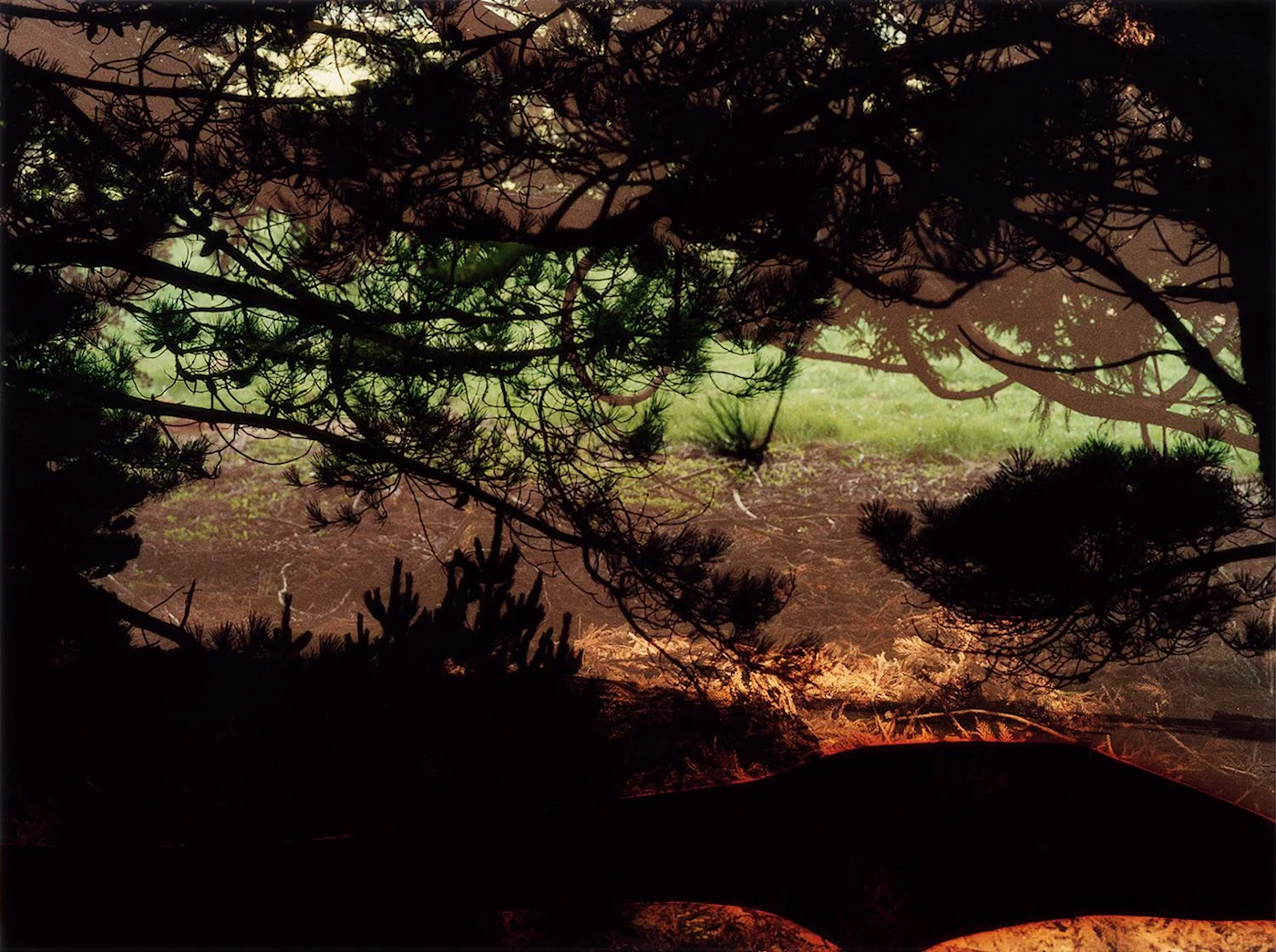
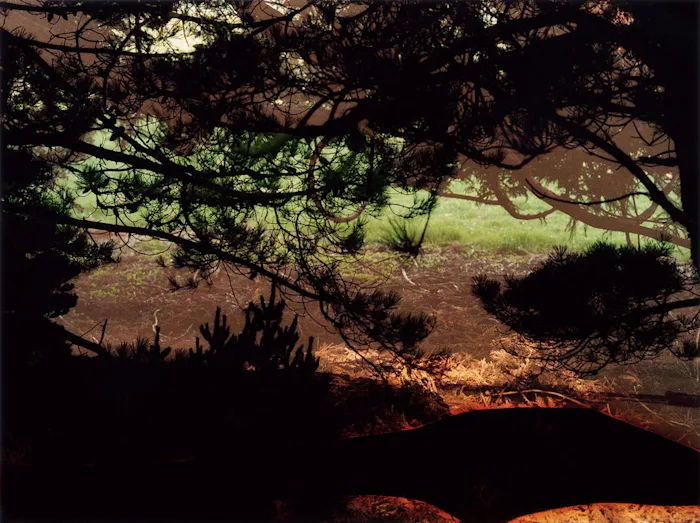
From the point of view of capital, it is clear that such a future is not the only one possible. As Cesarano and Camatte already observed, the destruction (wholesale or in part) of humanity and of a portion of life is obviously a possibility, since the energy consumption of this data economy is far from neutral. However, the scenario we have just described will not take place without others that may sometimes contradict it. In particular, episodes of destruction caused by wars or natural disasters that will allow the relocation of capital from destroyed industries to others more in line with such a future. In this way, because each of these horrors will reactivate old tensions (nationalism, class struggle, etc.), it is also necessary to suppose an increase in the control of populations intertwined with the production of this second nature. Depending on the importance of these catastrophes, such a prophecy may also be combined with a decrease in the world population, thus reducing the need for energy and raw materials. Finally, the unstoppable colonizing madness that looks more and more towards space implies an ever-increasing development of research into new ways of producing energy, cheaper and less extractivist (at least on planet Earth), but ever more powerful.
Conclusion: Ecology and the Search for Meaning
The announcement of the disaster and the front constituted around its prevention: do we not find here a contemporary reformulation of lack, of a thing that is "insofar as it is missing," or even the appearance as such of this lack?29 We could perhaps rewrite the first thesis of the Survival Manual as follows:
While the "hardest" (and most formally coherent) leftism claims a salary for all the destitution of all that destroys the living, capital nourishes the dream of its satisfaction ever less subtly: to purify itself of the pollution of production, even if it means abandoning men to the freedom to produce themselves as its containers, as pure forms filled with emptiness, energized by the same enigma: why am I here?"30
But, the completion of a form filled by emptiness, which here symbolizes the dissolution of the individual into his or her avatar, cannot be realized; and the civilization of opulence constitutes an ever-increasing threat to life. It is certain that the presence of the body has not yet been eclipsed by capital. It still needs it. And, even though capital can now claim to reintegrate its separation from nature, the suffering body gnostically directs desire towards that which it really lacks.
Although it hasn’t yet reached the level of a true struggle or an effective movement, is it not the case that various paths opened up by the problem of ecology are deeply wrapped up in the rediscovery of a quest for meaning that our newly recognized finitude carries with it? In a sense, the truth of ecology can be found here, as a manifestation of a thirst for being that would not immediately collapse into a meaninglessness totality, and which allows us to reconnect with that "true millennial hunger."31 However, the antediluvian relation is often short-lived. The thirst for being, guided not by an experience of suffering and the desire to make it stop, a passion, but by its mere announcement which only rarely reaches the "field of the experience," clings to the categories of domination and recirculates them. Here, certainty is not sensible. The insurrection of bodies has still not taken place. The positions held are harmless. The struggle for hegemony is disguised as a struggle against hegemony.
The dominant myth is now that of the apocalypse, in which the dilapidation of everything— and its self-criticism, which dilapidates the dilapidation — is expressed more and more explicitly. We are at the point of no return: death occupies the entire field, it presents itself as the true content of emptiness, so that all that remains for the species is to pierce its imago. What appears, for those who capitulate, as an impossible myth must instead appear to those who rebel as the most banal truth, and vice versa. Between the end sought after and the end of all ends, it is up to the critic to indicate which will be the final myth.32
But perhaps here it is now criticism itself that, by reintroducing a clumsy universal in spite of itself, struggles to enter the field of experience. It no longer allows itself to grasp things by the hand, but boasts of having understood them without bothering to penetrate them. The quest for meaning, the desire for liberation, and, in this way, the revolutionary aspect that the plurality of alternative ways of life currently proliferating give themselves — are these not the new lie that adopts the face of criticism today? This excessive politicization of existence, this unavowed desire to make oneself an example to follow — is this not the last myth to be destroyed? In the need to politically justify one's existence, do we not see a new mask concealing a wound? Although neither politics nor revolution is present, a constant need persists to translate our existence into these terms, resulting in a splitting of oneself, a tireless egotic production that hides the corporeality of our existences. Does not the tireless repression of negative experiences of the world (which persist anyway), even within our very attempts at desertion, generate the material for the constitution of its own avatar? Doesn't therenewal of the socius under new modalities, in the very spaces that curate their appearance as a refusal of what constitutes society today, make one blind to the "consubstantiality of its denied being with each of the beings denied?"32 To set out from this wound, as our concrete starting point: the point where denied being ceases to lie to itself, and grasps itself from within the gap between lived unreality and the derealization of its being.
Mohand
First published in Entêtement, June 2022
Images: Dafna Talmor
Notes
1. Giorgio Cesarano and Gianni Collu, Apocalypse et révolution, La Tempête, 2020, 133.↰
2. We borrow the term "cosmotechnics" from the philosopher Yuk Hui, who refuses to treat the notion of "technique" as a universal relationship between the human being and nature. This relationship must be interrogated starting from the milieu in which various communities evolve, but also in "relation to a larger configuration, a 'cosmology’ proper to the culture from which it emerged." (Yuk Hui, The Question Concerning Technology in China: An Essay in Cosmotechnics, Urbanomic, 2016, 10). According to Yuk, thescientific and technical thought that we experience only emerges within cosmological conditions that are expressed in relations between humans and their environment, which are never static (53). A cosmotechnics is thus the union of the cosmic order and the moral order through technical activity (56).↰
3. André Leroi-Gourhan, L'homme et la matière, 29-35, quoted by Yuk Hui in The Question Concerning Technology in China: An Essay in Cosmotechnics, Urbanomic, 2016, 55.↰
4. Nevertheless, it would be a caricature to consider its history as a simple expansion or replacement for all the other cosmotechnics that it encounters. In many places, it syncretizes with others. Let us simply say that it remains hegemonic.↰
5. "The system in which the sovereign mind imagined itself transfigured, has its primal history in the pre-mental, the animal life of the species. Predators get hungry, but pouncing on their prey is difficult and often dangerous; additional impulses may be needed for the beast to dare it. These impulses and the unpleasantness of hunger fuse into rage at the victim, a rage whose expression in turn serves the end of frightening and paralyzing the victim. In the advance to humanity this is rationalized by projection. The “rational animal” with an appetite for his opponent is already fortunate enough to have a superego and must find a reason." Theodor Adorno, Negative Dialectics, Routledge, 1973, 22.↰
6. Giorgio Cesarano, Critica dell'Utopia-Capitale, Colibri, 1993.↰
7. Jason W. Moore, Capitalism in the Web of Life: Ecology and the Accumulation of Capital, Verso, 2015.↰
8. Bruno Latour and Nikolaj Schultz, Mémo sur la nouvelle classe écologique, La découverte, 2022, 52. Forthcoming in 2023 as On the Emergence of an Ecological Class: A Memo (Wiley).↰
9. Latour and Schultz, Mémo sur la nouvelle classe écologique, 32.↰
10. Ernst Bloch, The Principle of Hope,Vol. 1, MIT Press, 1995, 196.↰
11. "All emotions refer to the actually temporal aspect in time, i.e. to the mode of the future, but whereas the filled emotions only have an unreal future, i.e, one in which objectively nothing new happens, the expectant emotions essentially imply a real future; in fact that of the Not-Yet, of what has objectively not yet been there." Bloch, The Principle of Hope: Vol. 1, 74.↰
12. There is, therefore, a certain analogy between the wandering that Camatte denounces in "The Wandering of Humanity,” which, in this article of 1973, was understood as the unending search for the "development of the productive forces" and the wandering that we describe here. Indeed, a study that focuses solely on the ongoing disaster and the revolt it engenders against those responsible does not necessarily lead to the destruction of the valorization process. Moreover, it even risks assisting it in its transformation.↰
13. That is to say, for Bloch (again taking up the young Marx) the naturalization of man and the hominization of nature. See The Principle of Hope, Vol. 3.↰
14. "Before examining the new forms of contradictions in process and uncontrolled devalorization, it is necessary to foresee, at their néiassance, the new forms in which the value tends to realize itself, forced to reach a level of organization of its production superior to the existing one, insofar as this is enough for it to revive its chances of perpetuation beyond the crisis." Cesarano and Collu, Apocalypse et révolution, 121.↰
15. Jacques Camatte, "Vers la communauté humaine," Invariance, Series III, n°3.↰
16. Jacques Camatte, "This World We Must Leave" in This World We Must Leave, Autonomedia, 1995, 166. A more sustained analysis of the various movements in Germany,England, and the United States is obviously missing here.↰
17. This is what one could call the "false" of the in-itself of ecology (that is to say, when it actually occurs in and for itself): the always impossible attempt to reenact historically obsolete sensible relations to the world. This is the fantasized possibility of a better life that departs not from a coherent understanding of oneself with the world, but from a romantic nostalgia induced by the projections and traces conducted to us by anthropology, history, etc. We can clumsily imitate these forms of previous life, parody them badly, but in no case can we incarnate them. The human being, in his multiplicities, cannot cut himself off abstractly from the lived world.↰
18. Latour and Schultz, Mémo sur la nouvelle classe écologique.↰
19. Candidate for the French Green Party (Europe Ecologie Les Verts) in the 2022 French presidential election.↰
20. Cesarano and Collu, Apocalypse et révolution, 60. ↰
22. Camatte, "This World We Must Leave," 139.↰
23. "We must remember that value, then capital, are products of human activities and that the representation of the autonomization of capital means that these activities become secondary and then strictly determined by it." Jacques Camatte, "L'échappement du capital," from his Preface to the Italian edition of a 1977 anthology of Invariance. Onlinehere.↰
24. Isn't this actually just a reprisal of Rosa Luxembourg's prediction that, from the moment it becomes globalized, capitalism will enter into decline? See Pierre Souyri, Le marxisme après Marx, Smolny, 2020, 22-23.↰
25. Camatte, "This World We Must Leave" in This World We Must Leave: And Other Essays, 1995, 140.↰
26. Camatte, "L'échappement du capital."↰
27. “At present there are three possible courses for the capitalist mode of production (in addition to the destruction of humanity — a hypothesis that cannot be ignored). These are: (i) Complete autonomy of capital: a mechanistic utopia where human beings become simple accessories of an automated system, though still retaining an executive role; (ii) Mutation of the human being, or rather a change of the species: production of a perfectly programmable being which has lost all the characteristics of the species Homo sapiens. This would not require an automatized system, since this perfect human being would be made to do whatever is required; (iii) Generalized lunacy: in the place of human beings, and on the basis of their present limitations, capital realizes everything they desire (normal or abnormal), but human beings cannot find themselves and enjoyment continually lies in the future. The human being is carried off in the run-away of capital, and keeps it going.” Jacques Camatte, "The Wandering of Humanity,” translated by Freddy Perlman. Online here.↰
28. “...une survie et une vie.” Raoul Vaneigem, "Basic Banalities," first published in Internationale situationniste, n° 7 and 8, 1962, 1963. Onlinehere.↰
29. Giorgio Cesarano, "Hors-marge," Manuel de survie, La Tempête, 2019, 261.↰
30. Giorgio Cesarano, Manuel de survie, La Tempête, 2019, 37.↰
31. "The true hunger is millenary: rich already in a knowledge of itself that allows one to rebel against the heteronomy tending to cloister it within a limit designated as the impossible overcoming of the ‘human condition.’ What is the meaning of creative self-genesis? It is generalized self-management, redoubling its blows permanently against any barrier put up to human realization, to the origin-in-becoming of the species’ mastery of its own destiny; the excessive fight against any and all production of the narrow dimension of the politics; the violent abolition of contingent powers administered on the backs of the oppressed in their own name; the regeneration (as opposed to the need thereof) of desire and its recognition; this, while seized by a passion for life of that renders it true, against the rhetoric of limits and poetics of sacrifice. The conditions of such a struggle are inscribed in the desire for communism, itself inscribed in the pathway of the prehistoric: an adversarial sense that exceeds any identity imposed upon it by the powers of the dead over the living; as the difference between a mechanical sequence of events ("history" of the historiographers and its alibi: linear thought) and individuals who have incarnated a passion to change the world, as the discontinuity capable of breaking that which continues its cybernetic modeling; as a real movement." Giorgio Cesarano, Ce que taire ne se peut, published posthumously in Puzz n°20, June-August 1975.↰
32. Cesarano, Manuel de survie, 109.↰
33. Cesarano, Manuel de survie, 177.↰